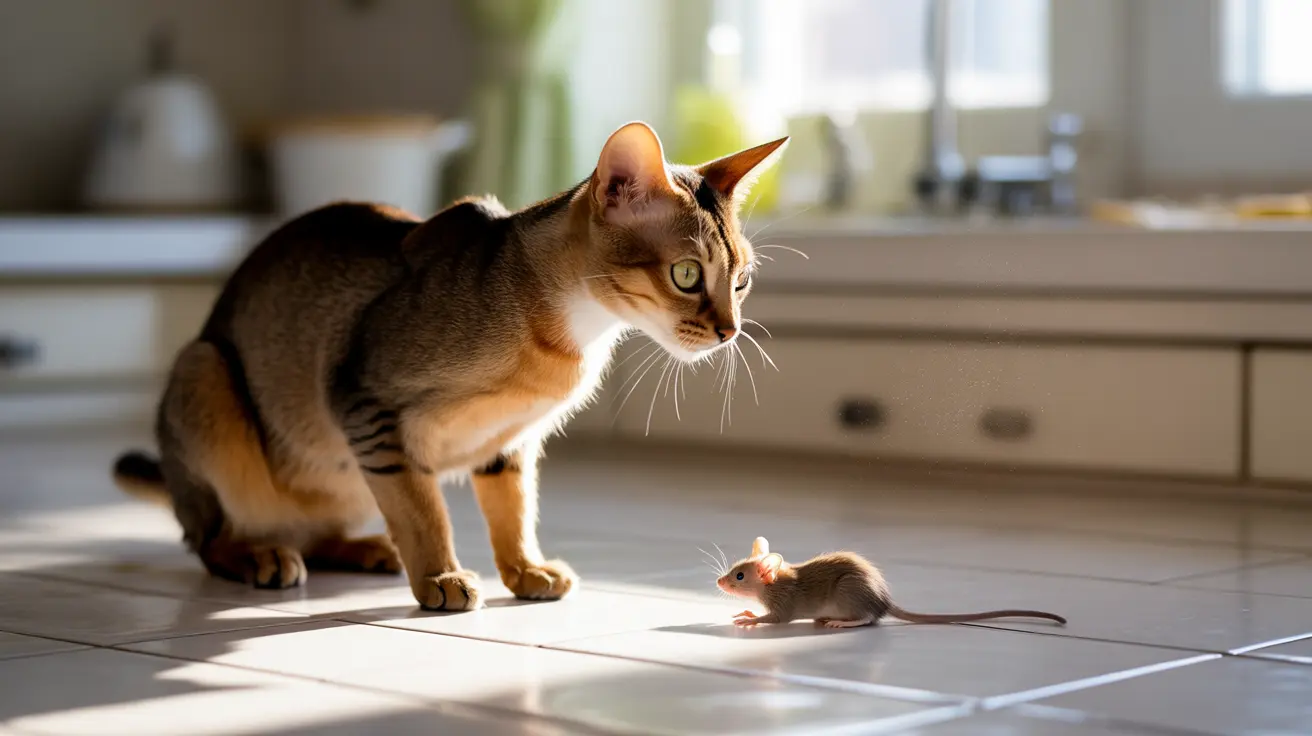Finding out your cat has eaten a mouse can be concerning for any pet owner. While cats are natural hunters and this behavior is deeply ingrained in their instincts, there are potential health risks you should be aware of. This comprehensive guide will help you understand the implications of your cat eating a mouse and what steps you should take to ensure their wellbeing.
Understanding Your Cat's Natural Hunting Behavior
Cats are instinctive hunters, and this behavior is hardwired into their DNA from their wild ancestors. Even well-fed domestic cats may chase and consume mice as part of their natural predatory drive. This hunting behavior serves multiple purposes, including mental stimulation, physical exercise, and satisfying their innate urges.
Potential Health Risks When Cats Eat Mice
Parasitic Infections
One of the primary concerns when cats consume mice is the risk of parasitic infections. Mice commonly carry various parasites that can affect your cat's health, including:
- Roundworms
- Tapeworms
- Coccidia
- Lungworms
These parasites can cause symptoms ranging from digestive issues to respiratory problems and require proper veterinary treatment.
Bacterial and Disease Exposure
Mice can harbor dangerous bacteria and diseases that may affect your cat, such as:
- Salmonella
- Toxoplasmosis
- Lyme disease
- Tularemia
While healthy cats may fight off some infections, these conditions can be particularly dangerous for kittens, elderly cats, or those with compromised immune systems.
Secondary Poisoning Risk
Perhaps the most serious immediate risk comes from secondary poisoning, which occurs when cats eat mice that have consumed rodenticide. Signs of poisoning may include:
- Lethargy
- Unusual bleeding
- Loss of appetite
- Difficulty breathing
- Seizures
Preventive Measures and Protection
To protect your cat from the risks associated with eating mice, consider implementing these preventive measures:
- Regular deworming treatments
- Maintaining up-to-date vaccinations
- Using pet-safe rodent control methods
- Regular veterinary check-ups
- Providing engaging alternatives for mental stimulation
When to Seek Veterinary Care
While not every mouse encounter requires immediate veterinary attention, certain situations warrant professional medical care. Contact your veterinarian if you notice:
- Vomiting or diarrhea
- Lethargy or weakness
- Unusual bleeding
- Respiratory difficulties
- Changes in appetite or behavior
Frequently Asked Questions
What health risks can my cat face after eating a mouse?
Cats can face several health risks, including parasitic infections (tapeworms, roundworms), bacterial infections (Salmonella), diseases (toxoplasmosis), and potential secondary poisoning if the mouse consumed rodenticide.
How can I tell if my cat is sick from eating a poisoned mouse?
Watch for symptoms such as lethargy, unusual bleeding (from nose, mouth, or in stool), difficulty breathing, seizures, or loss of appetite. These signs require immediate veterinary attention.
What parasites and diseases can cats get from eating mice?
Common parasites include tapeworms, roundworms, coccidia, and lungworms. Diseases include toxoplasmosis, Salmonella infection, and potentially Lyme disease or tularemia.
How do I prevent my cat from getting infected or poisoned by hunting mice?
Maintain regular deworming treatments, keep vaccinations current, use pet-safe rodent control methods, and provide adequate mental stimulation to reduce hunting behavior.
When should I take my cat to the vet after it has eaten a mouse?
Seek veterinary care if your cat shows any signs of illness, such as vomiting, diarrhea, lethargy, or unusual bleeding. If you suspect the mouse was poisoned, seek immediate emergency care.
Remember, while cats eating mice is a natural behavior, taking preventive measures and monitoring your pet's health afterward can help ensure their safety and well-being.






